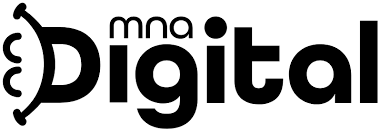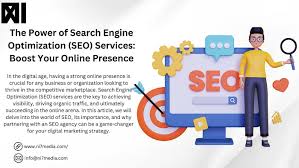The Power of Paid Search Engine Advertising
In today’s digital age, paid search engine advertising has become a powerful tool for businesses looking to increase their online visibility and drive targeted traffic to their websites. Also known as pay-per-click (PPC) advertising, this form of online marketing allows businesses to bid on keywords relevant to their products or services and have their ads displayed prominently in search engine results.
One of the key benefits of paid search engine advertising is its ability to deliver immediate results. Unlike organic search engine optimization (SEO), which can take time to see significant results, PPC ads can start driving traffic to your website as soon as your campaign goes live.
Furthermore, paid search engine advertising offers precise targeting options that allow businesses to reach their desired audience effectively. Advertisers can target users based on factors such as location, device, demographics, interests, and even specific keywords they are searching for.
Another advantage of PPC advertising is its flexibility and scalability. Advertisers have full control over their ad campaigns, allowing them to adjust budgets, target keywords, and ad copy in real-time based on performance metrics and goals.
Additionally, paid search engine advertising provides valuable insights into consumer behaviour and preferences. By analysing data such as click-through rates, conversion rates, and cost per acquisition, businesses can refine their marketing strategies and improve the overall effectiveness of their campaigns.
It is important for businesses considering paid search engine advertising to conduct thorough keyword research and create compelling ad copy that entices users to click. A well-optimised PPC campaign combined with a user-friendly landing page can lead to increased conversions and a higher return on investment.
In conclusion, paid search engine advertising is a powerful tool that can help businesses boost their online presence, attract qualified leads, and drive sales. By leveraging the benefits of PPC advertising effectively, businesses can achieve their marketing objectives and stay ahead in today’s competitive digital landscape.
Essential FAQs About Paid Search Engine Advertising: Understanding, Costs, Benefits, and Success Metrics
- What is paid search engine advertising?
- How does paid search engine advertising work?
- What are the benefits of paid search engine advertising?
- How much does paid search engine advertising cost?
- What are the key metrics to measure the success of a paid search engine advertising campaign?
- How can I create an effective paid search engine advertising campaign?
What is paid search engine advertising?
Paid search engine advertising, also known as pay-per-click (PPC) advertising, is a form of online marketing where businesses bid on keywords related to their products or services to have their ads displayed prominently in search engine results. When users search for these keywords, the ads appear at the top or bottom of the search results page, marked as ‘sponsored’ or ‘ad’. Advertisers only pay when a user clicks on their ad, hence the term pay-per-click. This method allows businesses to reach a targeted audience actively searching for relevant information and drive traffic to their websites, ultimately boosting visibility and potentially leading to conversions.
How does paid search engine advertising work?
Paid search engine advertising works by allowing businesses to bid on specific keywords relevant to their products or services. When a user enters a search query that matches the chosen keywords, the search engine displays the paid ads at the top or bottom of the search results page. Advertisers pay a fee each time a user clicks on their ad, hence the term pay-per-click (PPC) advertising. The position of the ad is determined by a combination of bid amount and ad relevance, with higher bids and quality scores leading to better placement. This targeted approach ensures that businesses reach users actively searching for their offerings, increasing the likelihood of generating qualified leads and driving website traffic.
What are the benefits of paid search engine advertising?
Paid search engine advertising offers a multitude of benefits for businesses looking to enhance their online presence and reach their target audience effectively. Some key advantages include immediate results, precise audience targeting options, flexibility in campaign management, scalability to adjust budgets and strategies, valuable insights into consumer behaviour, and the ability to refine marketing strategies based on performance metrics. By leveraging paid search engine advertising, businesses can drive targeted traffic to their websites, increase brand visibility, generate leads, and ultimately improve their return on investment in the competitive digital landscape.
How much does paid search engine advertising cost?
The cost of paid search engine advertising can vary significantly depending on various factors such as the competitiveness of the keywords you are targeting, your industry, the quality of your ad campaigns, and your overall advertising goals. Typically, paid search engine advertising operates on a pay-per-click (PPC) model, where advertisers only pay when a user clicks on their ad. Budgets for PPC campaigns can be set based on daily or monthly limits, giving advertisers control over their spending. It is important to carefully plan and monitor your PPC budget to ensure that you are maximising your return on investment and reaching your target audience effectively.
What are the key metrics to measure the success of a paid search engine advertising campaign?
When evaluating the success of a paid search engine advertising campaign, several key metrics play a crucial role in determining its effectiveness. These metrics include click-through rate (CTR), which indicates the percentage of users who clicked on the ad after seeing it; conversion rate, which measures the percentage of users who completed a desired action, such as making a purchase or signing up for a newsletter; cost per click (CPC), which shows how much each click on the ad costs the advertiser; return on investment (ROI), which calculates the revenue generated compared to the amount spent on advertising; and quality score, which assesses the relevance and quality of keywords, ads, and landing pages. By monitoring and analysing these metrics, advertisers can gain valuable insights into the performance of their paid search campaigns and make informed decisions to optimise their results.
How can I create an effective paid search engine advertising campaign?
Creating an effective paid search engine advertising campaign involves several key steps to maximise its impact and achieve your marketing goals. Firstly, conducting thorough keyword research to identify relevant and high-performing keywords is crucial for targeting the right audience. Crafting compelling ad copy that is clear, concise, and relevant to the search query can help increase click-through rates. Setting realistic campaign goals, monitoring performance metrics regularly, and making data-driven adjustments based on insights gained from analytics are essential for optimising the campaign’s effectiveness. Lastly, testing different ad variations, refining targeting options, and continuously improving the overall strategy are vital components of creating a successful paid search engine advertising campaign.




